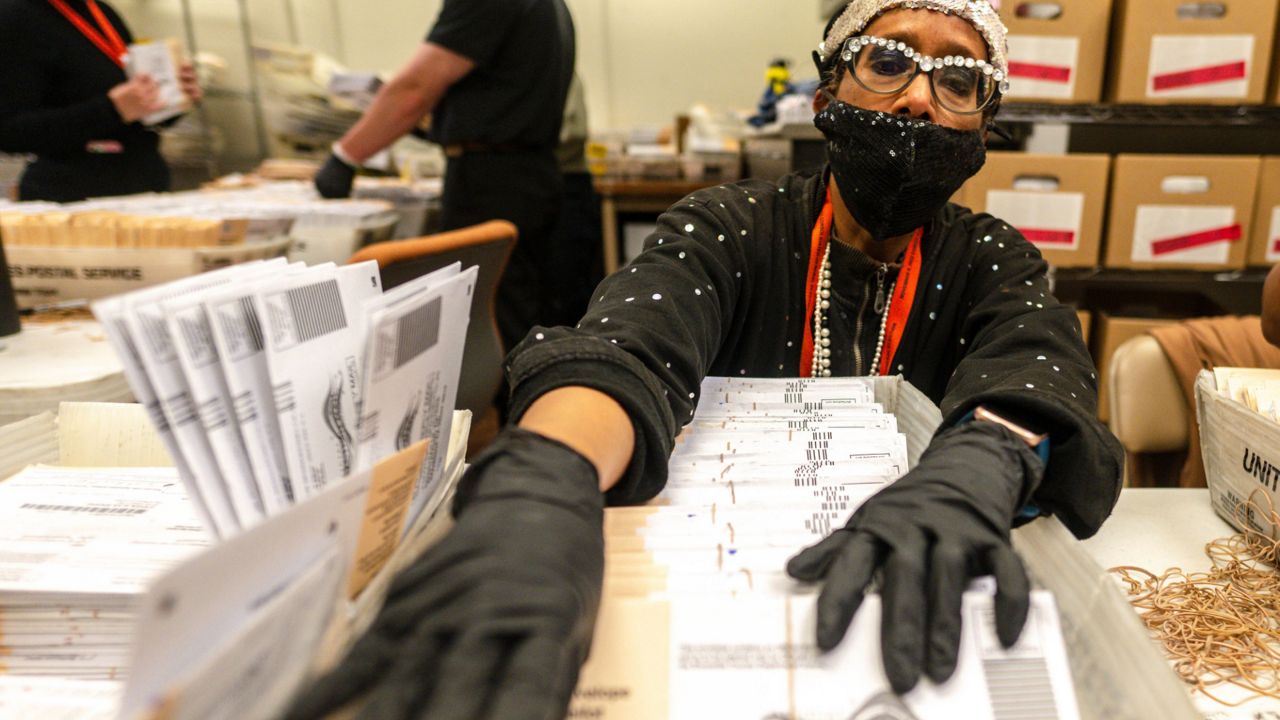ORANGE COUNTY, Calif. — As Orange County election results rolled in, Democrats have counted their winnings, Republicans have cheered theirs and the county’s political future remains unclear.
Both parties are fighting to secure strong candidates in areas of Orange County, with a majority of Vietnamese voters or other emerging demographics to secure tomorrow’s success.
For years, Orange County voting has steadily moved away from GOP candidates, emboldening moderate Democrats and opening the door for even more progressive candidates.
“It’s not like it was 20 years ago, when all you had to do was say Ronald Reagan three times and say Democrats suck,” said Republican political strategist Tab Berg.
Democrats have recorded gains on city councils over the past two elections, secured coveted seats in county congressional districts, and could win a majority on the Orange County Board of Supervisors.
But Republicans are optimistic the demographic changes show a correction instead of a total change in voting preference.
While President Joe Biden defeated Donald Trump in Orange County in 2020, other Democrats have not done as well. Gov. Gavin Newsom, who easily won reelection, did not win the Orange County vote. Neither did Lt. Gov. Eleni Kounalakis or Secretary of State Shirley N. Weber — both Democrats.
Those kinds of results often point to a nuanced approach by voters who appear to have kept the county purple in the Nov. 8 elections.
Republicans are trying to keep it that way.
“The Republicans have done a better job of recruiting exceptional candidates,” Berg said, pointing to U.S. Reps. Young Kim, R-Calif., and Michelle Steel, R-Calif., who were elected to second terms.
With the ballots still being counted, the Orange County Registrar of Voters has yet to publish how many votes each statewide candidate received in each voting district. That information can help observers, like local pollster Adam Probolsky, hone in on the ideological appetites of local voters.
But one thing is clear.
“Orange County has clearly moved to be more Democratic. That’s just the demographics and the way it is. But clearly there’s space for Republicans to hold office,” he said.
What’s not helping either party, he said, is the media market. Probolsky said the lack of prominent television and shrinking print publications limit the exposure voters have to candidates. That makes politicians with a record a more valuable commodity.
Both parties have also invested in outreach by translating messaging into multiple languages in order to connect with Vietnamese and Korean communities.
But with fewer news sources than larger markets, most voters won’t see debates, interviews or in-depth profiles of new candidates.
Probolsky pointed to Barack Obama, a politician with a name unfamiliar to most American ears who won a massive following with charisma and well-received speeches. Local candidates often won’t have a high media profile, even as social media equalizes opportunities for exposure.
Still, candidates from emerging demographics will always take time to catch on.
“Let’s not discount people’s xenophobia and how they rank their xenophobia,” he said. “People vote for people who look like them, act like them and have experiences in this world like the experiences they’ve had.”
That’s one ingredient that complicates predictions for future outcomes in the county, he said.
“We’re going to have a battle on our hands every election,” he said.



